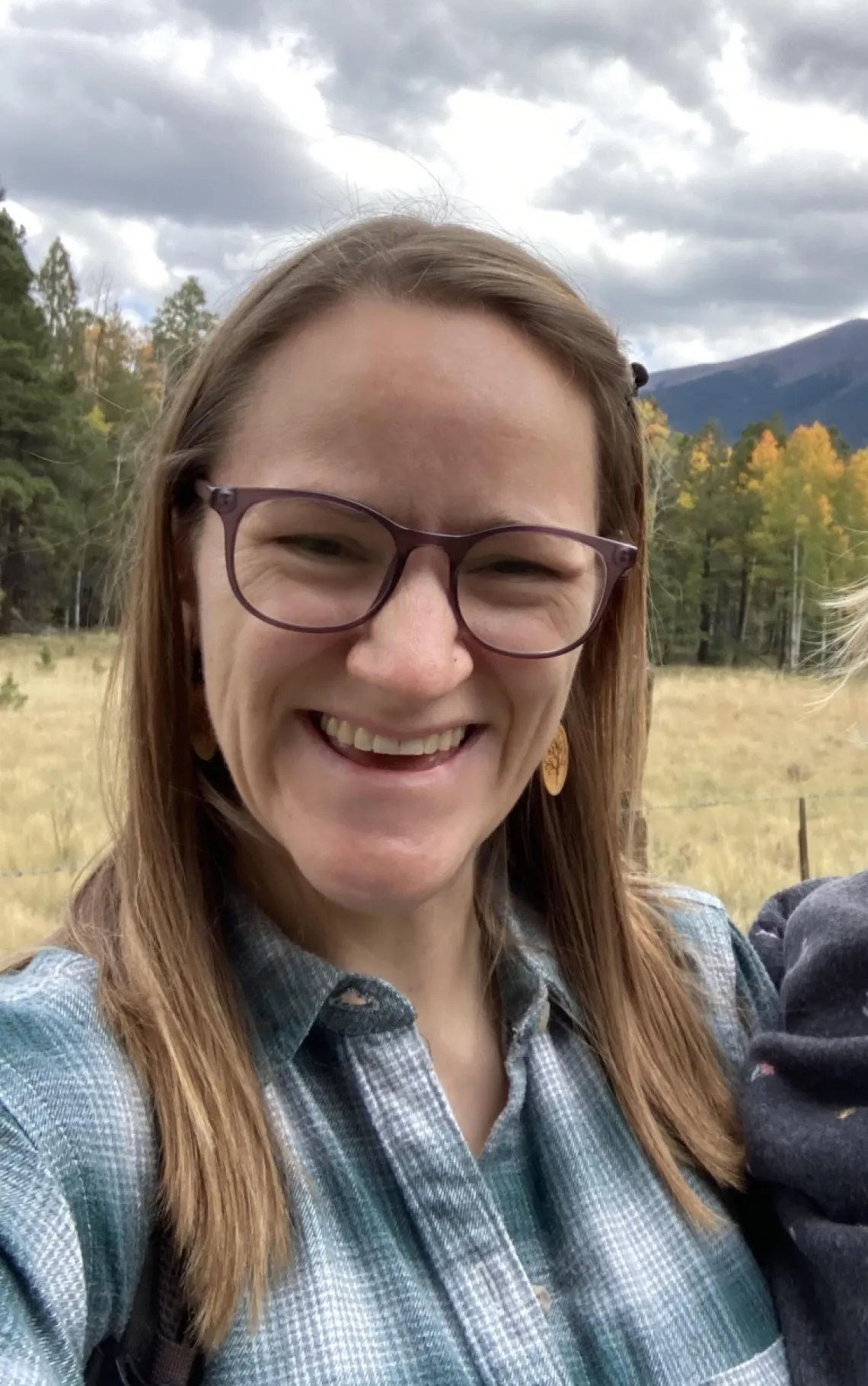What's next, Dr. Neville?

Dr. Rachel Neville moved out of Tucson’s Sonoran Desert city and opted for the forested mountains of Flagstaff, Arizona, a move that took her from postdoc to faculty.
After earning her Ph.D. from Colorado State University in 2017, Neville took her expertise to the University of Arizona. There, she worked as a Hanno Rund Postdoctoral Research fellow under the mentorship of Dr. Alan Newell in the Department of Mathematics for three years. Neville worked on several projects during her time as a postdoc, all of which were centered around the use of geometric structures, or data “shapes”, to characterize complex patterns of natural phenomena around the world. For example, Dr. Neville incorporates a technique called persistent homology, a method for detecting the primary features over a spatial range, to study and summarize the roughness of snow fields on mountainous terrain. Her innovative work and collaborative nature resulted in numerous publications with a variety of co-authors.
In addition to her research, Neville sought opportunities to further cultivate her knowledge by attending workshops, conferences, and seminars. She also took on multiple leadership roles, one of the most important of which was the founding director of the Women in STEM Mentorship Project – a peer mentoring program for undergraduate and graduate students pursuing a STEM degree.
Neville’s outstanding research contributions and postdoctoral activities resulted in her being the recipient of the UArizona 2020 Outstanding Postdoctoral Scholar Award.
She remembers her time at UArizona as giving her “the freedom, encouragement, and opportunity to develop skills in areas [she] was most passionate about. [She] had the chance to try new things and to soul search - to think carefully about what [she] wanted in a career.”
In fall 2021 Neville became a tenure-track assistant professor at Northern Arizona University (NAU). This is a significant transition for any postdoc, but for Neville, the transition from postdoctoral scholar to faculty member was even more challenging because not only did she need to establish herself as an independent researcher, but she needed to do this while navigating the COVID pandemic. Even more importantly she took on the role of a brand new mother at the same time. Nevertheless, as Neville points out: “The silver lining of COVID work-from-home arrangements for me was way more baby snuggles than I would have had otherwise.” In her words, “being a mother is “both one of the most challenging phases of my career that I have encountered and is incredibly rewarding. As a faculty member there are more demands on my time at work and now there are more demands on my time at home, but I love being a mom and a mathematician.”
Not only is Neville enthusiastic about motherhood and her research, she is also dedicated to her students.
“In whatever I’m doing, I hope to be supporting students - in the way I teach, in how I mentor research students, and how I build relationships with students. I’d love to help shape our math program here in a way that helps set students up for their next steps, whatever they may be.”
